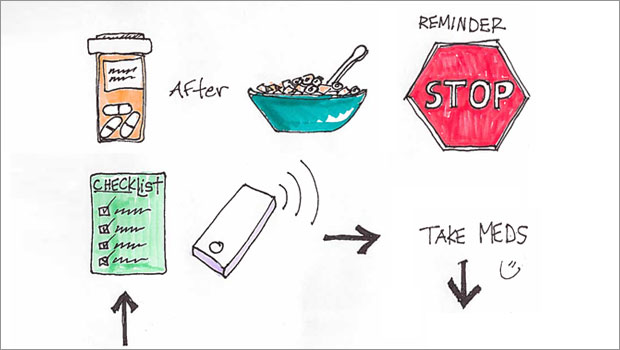REMIND study
What is the REMIND study?
Funded by the Agency for Healthcare Research and Quality (AHRQ), the REMIND study is a three-year project to redesign reminders and notifications for patients with chronic and preventive health care needs.
Patient reminders and notifications are effective at helping people reach their health goals. They remind people to schedule medical visits and screenings, help people adhere to complex medication regimens, and provide a liaison between patients, providers, and the health care system. But previous research on patient reminders has focused on a single health care need or condition and have used a single route, such as postal mail or phone calls.
Using various technologies, the REMIND study aimed to improve reminders and notifications so that patients can work more effectively with their providers to reach their health goals. It also aimed to incorporate the breadth of patients’ multiple chronic and preventive health care needs.
Learn more about REMIND methods and findings
Researchers, providers, and health systems are free to use work products from the REMIND study to help translate the science of patient reminders into design. The reports and publications provided below will give you insights into the values, technologies, relationships, and processes that influence chronic and preventive care in the home.
Needs and preferences of patients and their families
- Understanding patients’ health and technology attitudes for tailoring self-management interventions (full text at PubMed Central)
- Understanding design tradeoffs for health technologies: A mixed-methods approach (PDF, 935KB)
- Systematic inquiry for design of health care information systems: An example of elicitation of the patient stakeholder perspective (PDF, 266KB)
- Designing asynchronous communication tools for optimization of patient-clinician coordination (full text at PubMed Central)
- Opportunities for empathetic responses in field interview scenarios investigating home health routines (PDF, 190KB)
- Engineering for reliability in at-home chronic disease management (full text at PubMed Central)
Participatory design
- Persuasive reminders for health self-management (full text at PubMed Central)
Prototype testing
- Integrating the patient portal into the health management work ecosystem: user acceptance of a novel prototype (full text at PubMed Central)
-
The REMIND Project Inspiration Workbook:
Parts 1–2 (PDF, 1.99 MB)
Parts 3–4 (PDF, 1.71 MB)
For more information about the REMIND study, please visit our project page on the AHRQ website.
Collaborating Researcher

Dr. Wanda Pratt, PhD, UW Information School
Dr. Pratt's research focuses on understanding patients' needs and designing new technologies to address those needs.





